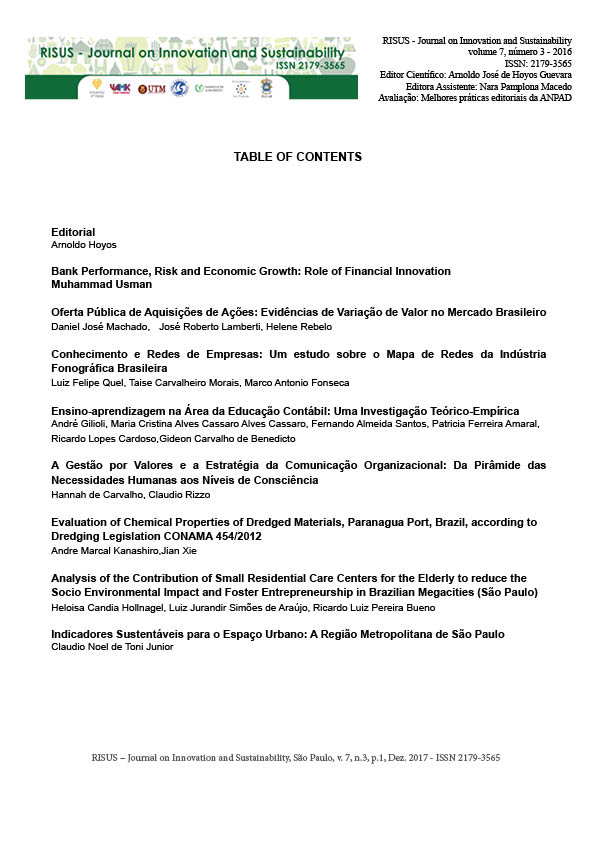Analysis of the Contribution of Small Residential Care Centers for the Elderly to reduce the Socio Environmental Impact and Foster Entrepreneurship in Brazilian Megacities (São Paulo)
DOI:
https://doi.org/10.24212/2179-3565.2016v7i3p103-119Keywords:
Daycare Centers, Low Budget, Megacities, Developing Countries, Sustainable EntrepreneurshipAbstract
On 2016 the 17 United Nations Sustainable Development Goals (SDGs) of the 2030 Agenda officially came into force proposing that Governments can work to promote inclusive and sustainable economic growth, employment and decent work for all. This study aims to analyze the contribution of Residential Elderly Care Center – RECC to promote SD along with social support in urban centers of megacities. Considering that the current scenario presents: longer life expectancy and increasing numbers of older people; the growing presence of women in the market and the hierarchy of companies making more and more difficult for them to stay at home as well as the failure of public care structure to respond adequately to citizens’ demands new business models are welcome. While the families are getting smaller which removes potential caregivers within them, conversely mobility issues among peripheral areas and public institutions are increasing. Large arrangements for caring can be useful in some contexts, but generally, require commuting from home to the support structure and new public and private investments. The potential reduction of human daily dislocations could improve the environment and life quality in megacities in many aspects: decreasing vehicles CO2 emissions, pollution and the volume of traffic; giving practicality to everyday life of families with dependent members of care and generating new opportunities of small business. In addition, this new residential structures employment might reduce the need to shift the caregivers themselves to their work place, strengthen community bounds and not require immobilization of new properties of the exclusive use for Care centers in highly urbanized areas. The methodology used in this paper is based in the exploratory-descriptive and bibliographical-documentary method. Results of the study are corroborated by a series of complementary research of the authors. Conceptual step-by-step flowchart to assist an entrepreneur to open a RECC is described.
Downloads
Published
Issue
Section
License
This Journal is licensed under a Creative Commons Attribution-Non Commercial-No Derivers 4.0 International license.
1.The author (s) authorize the publication of the article in the journal;
2.The author (s) warrant that the contribution is original and unpublished and is not in the process of being evaluated in other journal (s);
3. The journal is not responsible for the opinions, ideas and concepts emitted in the texts, as they are the sole responsibility of its author (s);
4. The editors are entitled to make textual adjustments and to adapt the articles to the standards of publication.


